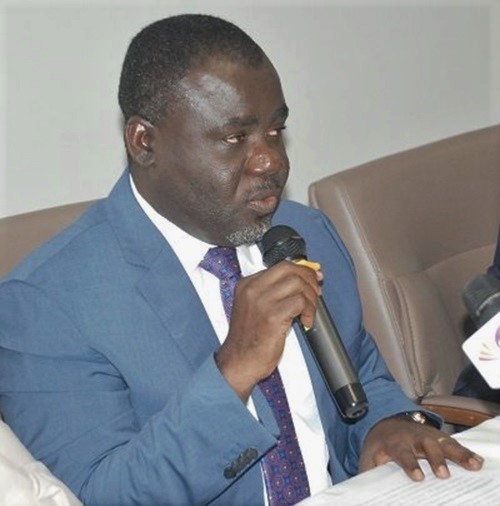
Ghana’s maritime sector uncertain in 2020
Just like other sectors of the economy, the country's maritime sector looks uncertain going into 2020.
This is due to a combination of factors summarised in the implementation of some key policies in the sector and the general uncertainties surrounding the upcoming 2020 general elections.
Although election years are often periods where the government spends much on goods and services, sadly this does not translate into a positive outcome for the maritime sector.
The last quarter of the year which is supposed to be the peak period for international trade activities often fails to respond during election years, data from the Ghana Shippers' Authority (GSA) has showed.
For instance, the last quarter of 2016 recorded a two per cent decline in seaborne trade volumes which could only be attributed to the December 2016 general elections.
Cargo throughput for the last quarter of the following year rather increased by 33.03 per cent compared to the same period in 2016.
What even makes 2020 a more tricky time for predictions, and also an intriguing one for experts and industry stakeholders, is that despite the investment and trade facilitation policies introduced by the government, seaborne trade does not respond to that effect.
Current data from GSA indicates that import trade, which is the major contributory factor to the entire throughput for the second quarter of 2019, showed a decrease of 16.89 per cent compared to the same period of 2018.
Sulphur cap regulation
Another side of the coin which makes the maritime sector extremely difficult to predict is the implementation of the 2020 Sulphur Cap Regulation which comes into force on January 1, 2020.
This mandate ships operating across the globe, including Ghana heeding to a directive by the International Maritime Organisation (IMO) to use marine fuel with a sulphur content of not more than 0.5 per cent against the current limit of 3.5 per cent.
The global fuel sulphur cap is part of the IMO’s response to heightening environmental concerns, contributed in part by harmful emissions from ships.
However, implementation of the IMO 2020 regulation and the planned response by the shipping lines will result in higher freight rates for all category of shipments.
For instance, compliance with the regulation is estimated to increase the cost of port-to-port moves by 10 to 20 per cent which will likely be paid for by the end-users.
It was for this reason that the GSA and the Ghana Maritime Authority's periodic seminar on the impact of the IMO’s 2020 sulphur cap regulation on shipping costs was apt.
The Chief Executive Officer (CEO) of GSA, Ms Benonita Bismarck said the development was expected to pose higher freight rates and would, therefore, result in higher cost of importation.
"This will consequently increase prices for the final consumer," she said.
Tariff increment
Also a 40 per cent increment in container handling tariff across the board had already taken effect at the port.
This obviously meant that stakeholders in the export and import trade business would need to cough huge sums of money to be able to clear their goods at the ports.
As a result, some traders in an interview with the Graphic Business have threatened to move their business to neighbouring ports, others have also hinted that they will pass on the cost to consumers through increased prices of their imports.
AfCFTA
However, all does not look gloomy in 2020, as the Africa Continent Free Trade Agreement (AfCFTA) is likely to enter its implementation phase in 2020.
The host of its secretariat alone in Ghana does not provide local firms a competitive edge over its peers within the continent. For this reason, the capacities of Ghanaian businesses needed to be boosted through strong deliberate policies in order to penetrate other countries markets with their products and services.
A Partner at PwC, Mr Edward Gomado, observed that the agreement did not only present an opportunity for Ghanaian companies to export to other countries, but also for companies in other African countries to also export here as well, and it was, therefore, critical for the government to support the country’s small and medium enterprises (SMEs) to make the most out of the agreement.
“If we are talking about competition, how much does it cost a Ghanaian company to produce quality products and how competitive will the company be in terms of pricing if it decides to export? As a country, we need to do an analysis to find out what the major costs are for SMEs and how we can support them,” he noted.